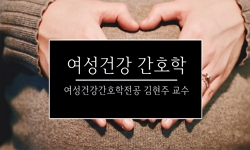This study investigated the impacts of health belief components on women’s illness-related attitudes from a cross-national perspective, focusing on how women’s perceptions of women-specific cancers and the early screening procedures for these canc...
http://chineseinput.net/에서 pinyin(병음)방식으로 중국어를 변환할 수 있습니다.
변환된 중국어를 복사하여 사용하시면 됩니다.
- 中文 을 입력하시려면 zhongwen을 입력하시고 space를누르시면됩니다.
- 北京 을 입력하시려면 beijing을 입력하시고 space를 누르시면 됩니다.



The Effects of Health Belief Components on Women’s Intentions of Early Cancer Screenings: A Cross-National Analysis
한글로보기https://www.riss.kr/link?id=A104978814
- 저자
- 발행기관
- 학술지명
- 권호사항
-
발행연도
2013
-
작성언어
English
- 주제어
-
등재정보
KCI등재,SSCI,SCOPUS
-
자료형태
학술저널
- 발행기관 URL
-
수록면
29-50(22쪽)
-
KCI 피인용횟수
1
- 제공처
-
0
상세조회 -
0
다운로드
부가정보
다국어 초록 (Multilingual Abstract)
This study investigated the impacts of health belief components on women’s illness-related attitudes from a cross-national perspective, focusing on how women’s perceptions of women-specific cancers and the early screening procedures for these cancers. Online surveys were administered to a total of 944 females aged 30-59 from three countries: the US, Japan, and South Korea. Participants were asked about their health beliefs (perceived susceptibility, perceived severity, perceived benefits, and perceived barriers) and intentions to take early screenings for women-specific cancers. The results of statistical analyses (MANCOVA and multiple regression) indicated that Japanese and South Korean women were significantly higher in degrees of perceived susceptibility and perceived severity compared to US women. However, Japanese women showed the least positive attitude toward cancer prevention among the three countries. Other results also confirmed cross-national differences in health beliefs and their influence on women’s attitudes toward cancer prevention, but many of the results were not consistent with the cultural values traditionally associated with each nation. Implications of the findings point to improvements in health promotion practices that target women.
참고문헌 (Reference)
1 Sharif, S., "Women with neurofibromatosis 1 are at a moderately increased risk of developing breast cancer and should be considered for early screening" 44 : 481-484, 2007
2 Champion, V. L., "Use of the health belief model in determining frequency of breast self-examination" 8 : 373-379, 1985
3 Tang, T., "The role of cultural variables in breast self-examination and cervical screening behavior in young Asian women living in the United States" 22 (22): 419-436, 1999
4 Rosenstock, I. M., "The health belief model and preventive health behavior" 2 (2): 354-386, 1974
5 Becker, M. H., "The health belief model and personal health behavior" 2 (2): 409-419, 1974
6 Pirzadeh, A., "The effect of education on women’s practice based on the health belief model about pap smear test" 3 (3): 585-590, 2012
7 Uskul, A. K., "The cultural congruency effect: Culture, regulatory focus, and the effectiveness of gain- vs. loss-framed health messages" 45 : 535-541, 2009
8 Han, H., "Tailored lay health worker intervention improve breast cancer screening outcomes in non-adherent Korean- American women" 24 (24): 318-329, 2009
9 Trompenaars, F., "Riding the waves of culture: Understanding diversity in global business" McGraw-Hill 1998
10 Champion, V. L., "Reliability and validity of breast cancer screening belief scales in African American women" 46 (46): 331-337, 1997
1 Sharif, S., "Women with neurofibromatosis 1 are at a moderately increased risk of developing breast cancer and should be considered for early screening" 44 : 481-484, 2007
2 Champion, V. L., "Use of the health belief model in determining frequency of breast self-examination" 8 : 373-379, 1985
3 Tang, T., "The role of cultural variables in breast self-examination and cervical screening behavior in young Asian women living in the United States" 22 (22): 419-436, 1999
4 Rosenstock, I. M., "The health belief model and preventive health behavior" 2 (2): 354-386, 1974
5 Becker, M. H., "The health belief model and personal health behavior" 2 (2): 409-419, 1974
6 Pirzadeh, A., "The effect of education on women’s practice based on the health belief model about pap smear test" 3 (3): 585-590, 2012
7 Uskul, A. K., "The cultural congruency effect: Culture, regulatory focus, and the effectiveness of gain- vs. loss-framed health messages" 45 : 535-541, 2009
8 Han, H., "Tailored lay health worker intervention improve breast cancer screening outcomes in non-adherent Korean- American women" 24 (24): 318-329, 2009
9 Trompenaars, F., "Riding the waves of culture: Understanding diversity in global business" McGraw-Hill 1998
10 Champion, V. L., "Reliability and validity of breast cancer screening belief scales in African American women" 46 (46): 331-337, 1997
11 Paek, H., "Is on-line health promotion culture-bound?: Cultural characteristics manifested in U.S. and South Korean antismoking Web sites" 38 (38): 35-47, 2009
12 Nomura, K., "Impact of insomnia on individual health dissatisfaction in Japan, South Korea, and Taiwan" 28 (28): 1328-1332, 2005
13 Aiken, L. S., "Health beliefs and compliance with mammography-screening recommendations in asymptomatic women" 13 : 122-129, 1994
14 Glanz, K., "Health Behavior and Health Education: Theory, Research and Practice" Wiley & Sons 2002
15 Jemal, A., "Globan cancer statistics" 61 (61): 69-90, 2011
16 American Cancer Society, "Global Cancer Facts & Figures"
17 World Health Organization, "GLOBOCAN 2008 fact stats"
18 Taras, V., "Examining the impact of culture's consequences: A three-decade, multilevel, meta-analytic review of Hofstede's cultural value dimensions" 95 (95): 405-439, 2010
19 Tanner-Smith, E. E., "Evaluating the health belief model: A critical review of studies predicting mammographic and pap screening" 8 (8): 95-125, 2010
20 Barg, F. K., "Enhancing breast cancer communication: A cultural model approach" 25 (25): 335-342, 2008
21 Han, K., "Does culture matter?: A cross-national investigation of women’s responses to cancer prevention campaigns" 33 (33): 75-94, 2012
22 Lee, H., "Do cultural factors predict mammography behavior among Korean immigrants in the USA?" 65 (65): 2574-2584, 2009
23 Noroozi, A., "Determinants of breast self-examination performance among Iranian women: An application of the health belief model" 26 : 365-374, 2010
24 Hofstede, G., "Culture’s consequences: Comparing, values, behaviors, institutions, and organizations across nations" Sage Publications 2001
25 Flight, I., "Cross-cultural validation of the preventive health model for colorectal cancer screening: An Australian study" 37 (37): 724-736, 2010
26 Lee, Y., "Correlates of cognitive impairment and depressive symptoms among older adults in Korea and Japan" 20 (20): 576-586, 2005
27 Choi, K., "Comparison of breast cancer screening rates between Korean women in America versus Korea" 19 (19): 1089-1096, 2010
28 Kagawa-Singer, M., "Cancer, culture, and health disparities: Time to chart a new course?" 60 (60): 12-39, 2010
29 Smith, R. A., "Cancer screening in the United States, 2010: A review of current American Cancer Society guidelines and issues in cancer screening" 60 (60): 99-119, 2010
30 McCraken, M., "Cancer incidence, mortality, and associated risk factors among Asian Americans of Chinese, Filipino, Vietnamese, Korean, and Japanese ethnicities" 57 (57): 190-205, 2007
31 World Health Organization, "Cancer fact sheet"
32 American Cancer Society, "Cancer Facts & Figures 2013"
33 Lee, H., "Breast cancer screening disparity among Asian-American women: Does race/ethnicity matter?" 19 (19): 1877-1884, 2009
34 Juon, H., "Breast and cervical cancer screening among Korean American elderly women" 6 (6): 228-235, 2002
35 Apantaku, L. M., "Breast Cancer Diagnosis and Screening" 62 (62): 596-602, 2000
36 MacKenzie, S. B., "An empirical examination of the structural antecedents of attitude toward the ad in an advertising pretesting context" 53 (53): 48-65, 1989
동일학술지(권/호) 다른 논문
-
Health, Hygiene, and Nutrition: A Cause of Concern among Adolescent Girls in Kumaun Uttaranchal
- 숙명여자대학교 아시아여성연구원
- Beena Narayan
- 2013
- KCI등재,SSCI,SCOPUS
-
The Effects of Health Belief Components on Women’s Intentions of Early Cancer Screenings
- 숙명여자대학교 아시아여성연구원
- Kyoo-Hoon Han
- 2013
- KCI등재,SSCI,SCOPUS
-
Perception of Childbirth and Childrearing among Korean Married Women
- 숙명여자대학교 아시아여성연구원
- Mi Hyang Do
- 2013
- KCI등재,SSCI,SCOPUS
-
Chinese Diasporic Women’s Writing, Gender and Identities
- 숙명여자대학교 아시아여성연구원
- Anh Hua
- 2013
- KCI등재,SSCI,SCOPUS
분석정보
인용정보 인용지수 설명보기
학술지 이력
| 연월일 | 이력구분 | 이력상세 | 등재구분 |
|---|---|---|---|
| 2023 | 평가예정 | 해외DB학술지평가 신청대상 (해외등재 학술지 평가) | |
| 2020-01-01 | 평가 | 등재학술지 유지 (해외등재 학술지 평가) |  |
| 2017-07-06 | 학회명변경 | 한글명 : 아시아여성연구소 -> 아시아여성연구원 |  |
| 2011-01-01 | 평가 | 등재학술지 유지 (등재유지) |  |
| 2009-01-01 | 평가 | 등재학술지 유지 (등재유지) |  |
| 2007-01-01 | 평가 | 등재학술지 유지 (등재유지) |  |
| 2004-01-01 | 평가 | 등재학술지 선정 (등재후보2차) |  |
| 2003-01-01 | 평가 | 등재후보 1차 PASS (등재후보1차) |  |
| 2001-07-01 | 평가 | 등재후보학술지 선정 (신규평가) |  |
학술지 인용정보
| 기준연도 | WOS-KCI 통합IF(2년) | KCIF(2년) | KCIF(3년) |
|---|---|---|---|
| 2016 | 0.13 | 0.1 | 0.1 |
| KCIF(4년) | KCIF(5년) | 중심성지수(3년) | 즉시성지수 |
| 0.08 | 0.09 | 0.321 | 0.05 |




 KCI
KCI




